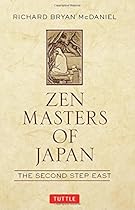

An electrifying story of the sensational murder trial that divided a city and ignited the civil rights struggleIn 1925; Detroit was a smoky swirl of jazz and speakeasies; assembly lines and fistfights. The advent of automobiles had brought workers from around the globe to compete for manufacturing jobs; and tensions often flared with the KKK in ascendance and violence rising. Ossian Sweet; a proud Negro doctor-grandson of a slave-had made the long climb from the ghetto to a home of his own in a previously all-white neighborhood. Yet just after his arrival; a mob gathered outside his house; suddenly; shots rang out: Sweet; or one of his defenders; had accidentally killed one of the whites threatening their lives and homes. And so it began-a chain of events that brought America's greatest attorney; Clarence Darrow; into the fray and transformed Sweet into a controversial symbol of equality. Historian Kevin Boyle weaves the police investigation and courtroom drama of Sweet's murder trial into an unforgettable tapestry of narrative history that documents the volatile America of the 1920s and movingly re-creates the Sweet family's journey from slavery through the Great Migration to the middle class. Ossian Sweet's story; so richly and poignantly captured here; is an epic tale of one man trapped by the battles of his era's changing times.Arc of Justice is the winner of the 2004 National Book Award for Nonfiction.
#1410051 in Books Richard Bryan McDaniel 2016-11-01 2016-11-01Original language:EnglishPDF # 1 8.00 x 1.10 x 5.13l; 1.06 #File Name: 0804847975288 pagesZen Masters of Japan The Second Step East
Review
0 of 0 people found the following review helpful. Five StarsBy David P. ShapiroNice overview..well written and great seller0 of 2 people found the following review helpful. Excellent!By DaiguI am waiting already for the third volume; the sequence is of great value not only for practitioners but also for students and scholars and those interested in the evolution and transmission of the teachings since the historical Buddha to our present time.6 of 8 people found the following review helpful. A Chronicle of the Japanese Zen MastersBy Seth ZuihÅ SegallRichard Bryan McDaniel's Zen Masters of Japan: The Second Step East is clearly a labor of love -- part of a three book series (Zen Masters of China; Zen Masters of Japan; and the upcoming Zen Masters of the West) that presents a chronicle of the lives of some of the most important Japanese Zen teachers. The book begins -- after a brief prologue in China-- with the earliest Japanese pilgrims who brought Zen from China to Japan; and concludes with Soyen Shaku's 1893 visit to the World Parliament of Religions in Chicago. The book's prose is clear; clean and uncluttered; and a pleasure to read. The wisdom; poetry; and wit of the Zen ancestors -- Japanese Zen patriarchs like Dogen; Hakuin; Basho and Ryokan -- comes shining through. McDaniel frames the lives of these Zen masters in their cultural and historical context; so that the reader painlessly absorbs a reasonable amount of Japanese culture and history along the way. Who is this book right for? It occupies a peculiar niche. It contains too much information for someone just casually interested in Zen; and yet may not be scholarly enough for someone who's already well versed in it -- its ideal readers will be Zen enthusiasts/practitioners who know a little but not a lot about Japanese Zen history. As a reader; I'm somewhere in the middle of this continuum; so that I found myself both thankful to McDaniel for learning about Zen figures I'd never known and delighted by various nuggets of Zen lore and mondo (teacher-student dialogues) I'd either never known or had long forgotten; but also frustrated by the book's shortcomings. As a summation of stories already contained in a number of well-known English language publications (e.g.; Ferguson; Dumoulin; Cleary; Suzuki; and Reps); the book lacks new scholarship; or a familiarity with their original Japanese sources. It often fails to distinguish between fact; as an historian might define it; and lore as it comes down through the Zen tradition -- what's biography and what's hagiography. It also presents Zen as Zen would like to present itself; without delving critically into what's lost and what's gained as Japanese Zen bows to political and economic pressures from shoguns; samurai; and nationalist Meiji restorers. And where; by the way; are the Zen matriarchs? Those criticisms aside; if you're a Zen practitioner just beginning your journey -- and you aren't too finicky about what's history and what's lore -- this book is a painless way to begin to familiarize yourself with Zen's Japanese history.